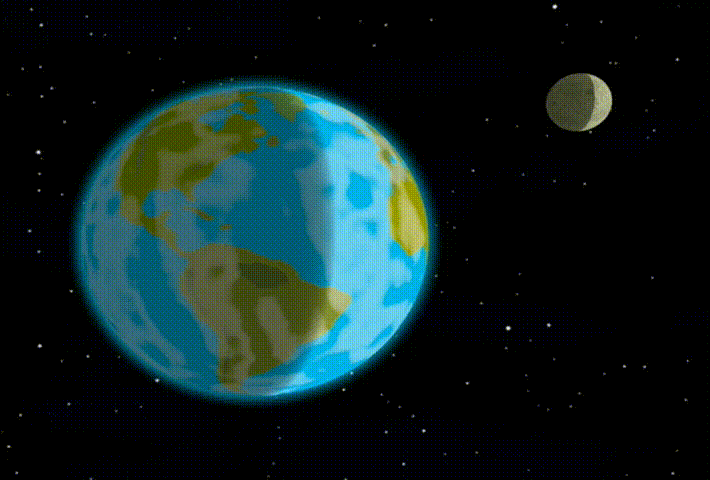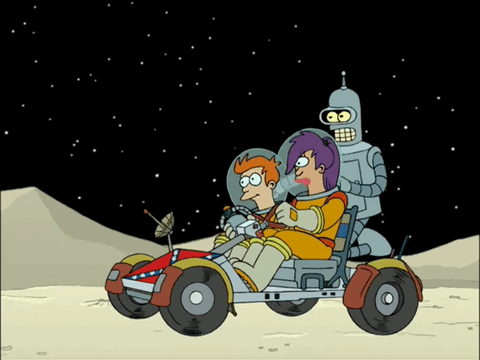Gustav Holst once said that he studied “things that suggest music.” I feel the same way, except it’s often the inverse - I end up studying things that music suggests to me. That’s part of why I’ve held onto an interest in astronomy.
The parallel interest with space travel also comes from being the little sister of a guy who loves all things space - from NASA to aliens. With the recent space tourism conversation, it feels like all of these fascinations are coming together at once. And they seem to converge on Mars.
Gotta love the drama.
In 1918 when Holst’s suite The Planets had its premiere, space travel was something reserved for science fiction. After all, the Wright Brothers had only flown in 1903. It was actually astrology on Holst’s mind - he was well known for interpreting friends’ horoscopes. And since as he composer World War I was raging, it must be no coincidence that the Bringer of War is such a violent piece of orchestral music.
Over a century later Mars sounds like it’s nearly in reach. Though it’s currently only inhabited by robots, NASA remains committed to the goal of getting humans there and back. And SpaceX claims they’ll be on the red planet in 2031, though their rockets will have to stop exploding first.
60 years ago just the promise that we would reach outer space was deeply inspiring. It rallied the country together. But the most recent example of space tourism has been criticized as “tone deaf” and “gluttonous.”
Classical music is familiar with this kind of criticism. Do we need an orchestra? Do we need live musicians? Do we need concerts? Can’t that film soundtrack use midi? Can’t the ballet dance to a recording?
We don’t technically need to go to space, but I’m glad that we have. Camera phones, scratch-resistant glasses, LEDs, CAT scans, memory foam, lightweight running shoes, dust busters, GPS, accuweather, solar panels, flame retardant building materials, home insulation, modern smoke detectors, computer mice, and baby formula all exist thanks to problem solving for space travel.
But more specifically, the money spent on going to space doesn’t just disappear into the atmosphere. It gets spent here on earth. Even a mixed group of celebrities and scientists heading up past the Kármán line earned a paycheck for a group of engineers and machinists.
It’s another thing that classical music can likewise claim. Nationwide, for the $201 million we spend on the NEA, nonprofit arts organizations (like orchestras) create 2.6 million jobs and generate over $100 billion in income across the USA, not to mention about $29 billion in tax revenue. On average, for every ticket sold, another $40 also gets spent at local businesses in the same outing.
Sometimes it’s hard to see the rippling effect of where money gets spent, whether those dollars come from taxes or the wealthy themselves. In addition to musicians and authors, there were in fact scientists on the Blue Origin flight. And we learn something every time we go to space. Sure, unlike Aisha Bowe and Amanda Nguyễn, Katy Perry didn’t do a science experiment during her flight. But artists seek inspiration, so I don’t know that I’d criticize her for going after it.
I do appreciate that within their marketing materials Blue Origin actually emphasizes creativity - something that we tend to forget should go hand in hand with STEM fields. I don’t know that a company like Blue Origin is doing the right thing by sending tourists to space. I’m not an engineer, and I understand a viewpoint that prioritizes taking care of each other here on earth. But I also see the appeal of trying something big and looking to the far future.
By the end of World War I, as The Planets premiered, England alone had lost over a million people. And there was Gustav Holst, with a new piece that used a massive orchestral force, along with a chorus. Holst wasn’t really famous at the time - considered a fairly mediocre composer. He even cited Saturn as his favorite of the movements - a somewhat brooding and dark reflection on the inevitability of aging. Surely a sensitive subject after so many young men were recently lost in battle.
“Tone deaf” and “gluttonous?” Maybe. Worth it? Only time can ever tell. But in this case, of course it was. And maybe this is an unpopular opinion, but I feel like when it comes to Blue Origin, it might also be worth waiting to find out.
After the premiere of The Planets, some critics were fans, but others described the work as “superficial and noisy.” Holst himself was hardly even trying to find performances for the piece, but with the support of his friends it ended up making its way into the favorite orchestral repertoire, and stays there even today. To understand why, it helps to reflect on the movement at the literal heart of the piece - right in the middle. You may know it if your children have watched Bluey.
Jupiter is a lot - it can wash over you, and even just the hymn tune leaves me feeling tears more often than not. And within the larger Planets work, it leads right back to the pensive and ominous. But it’s a reminder, for a few minutes, that even when we know darkness is on the horizon, we can face it while holding onto what brings us joy.
Disagree? You might enjoy this reflection via opera from writer Olivia Giovetti.
Want more space set to music? Here’s a playlist:
- Colleen









🙂↕️🙂↕️🙂↕️ Gustav Holst, my astrology bestie of the past
As someone more or less coerced into "liking" classical or symphonic music over the years, The Planets is clearly one of the selections I always found enjoyment in. There are several others, but this one is a wonderful performance.